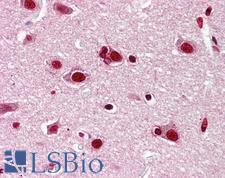Login
Registration enables users to use special features of this website, such as past
order histories, retained contact details for faster checkout, review submissions, and special promotions.
order histories, retained contact details for faster checkout, review submissions, and special promotions.
Forgot password?
Registration enables users to use special features of this website, such as past
order histories, retained contact details for faster checkout, review submissions, and special promotions.
order histories, retained contact details for faster checkout, review submissions, and special promotions.
Quick Order
Products
Antibodies
ELISA and Assay Kits
Research Areas
Infectious Disease
Resources
Purchasing
Reference Material
Contact Us
Location
Corporate Headquarters
Vector Laboratories, Inc.
6737 Mowry Ave
Newark, CA 94560
United States
Telephone Numbers
Customer Service: (800) 227-6666 / (650) 697-3600
Contact Us
Additional Contact Details
Login
Registration enables users to use special features of this website, such as past
order histories, retained contact details for faster checkout, review submissions, and special promotions.
order histories, retained contact details for faster checkout, review submissions, and special promotions.
Forgot password?
Registration enables users to use special features of this website, such as past
order histories, retained contact details for faster checkout, review submissions, and special promotions.
order histories, retained contact details for faster checkout, review submissions, and special promotions.
Quick Order
PathPlusTM JUN / c-Jun Antibodies
JUN (c-Jun,p39) forms the AP-1 early response transcription factor together with c-Fos. Under normal conditions, JUN plays a vital role in cell cycle progression, growth regulation and protection from UV-induced apoptosis. It is also a proto-oncogene that is frequently deleted, amplified or deregulated in cancer and is implicated in tumorigenesis in the breast, lung, liver and elsewhere. Additionally, JUN is an injury signaling protein, and overexpression of JUN in cortical and DRG neurons in the brain has been shown to promote regeneration. In immunohistochemistry, JUN has nuclear positivity in neurons in the cerebral cortex and cerebellum in the brain, and is positive in fractions of cells in most other tissues.
References: The EMBO Journal. 18 (1): 188–97, PMID: 9878062; Cancer Research. 56 (2): 305–15, PMID: 8542585; Nat Rev Neurosci. 2018 Jun;19(6):323-337, PMID: 29666508;
1 PathPlusTM Antibody

☰ Filters
Products
Antibodies
(1)
Type
Primary
(1)
Target
JUN / c-Jun
(1)
Reactivity
Human
(1)
Mouse
(1)
Rat
(1)
Application
IHC
(1)
IHC-P
(1)
WB
(1)
IP
(1)
Peptide-ELISA
(1)
Host
rabbit
(1)
Product Group
PathPlus Neuro
(1)
Isotype
IgG
(1)
Clonality
polyclonal pc
(1)
Format
Unconjugated
(1)
Epitope
aa210-259
(1)
Publications
No
(1)

Neuroscience
JUN / c-Jun Rabbit anti-Human Polyclonal (aa210-259) Antibody
Mouse, Rat, Human
IHC, IHC-P, IP, Peptide-ELISA, WB
Unconjugated
50 µl/$375
Viewing 1-1
of 1
product results










